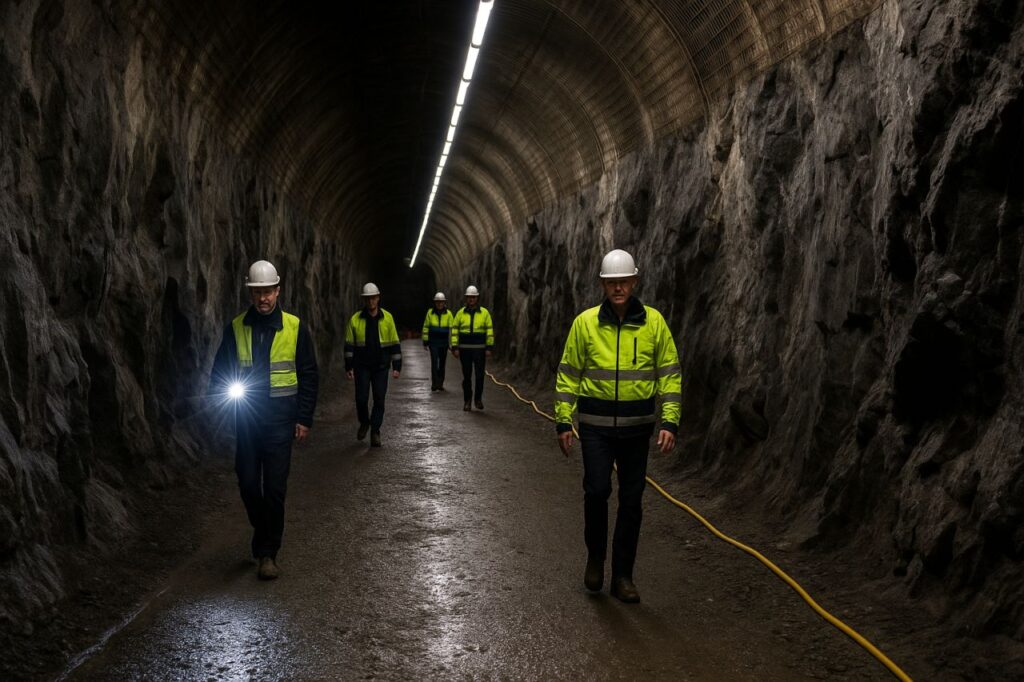Germany’s search for a final repository for highly radioactive waste has become a symbol of the flawed developments in its energy policy. While Finland is on the verge of commissioning its nuclear waste repository, the Federal Republic is bogged down in endless procedures, commissions, and conflicts of interest. Officially, the focus is on transparency and public participation, but behind this lies a dense network of activists, politicians, and government officials who, over the years, have created structures that primarily secure one thing: influence and taxpayer money.
A Process Caught Between Ideology and Control
The Federal Office for the Safety of Nuclear Waste Management (BASE) is responsible for the final repository project. However, internal documents describe a politicized system. As early as 2023, an anonymous letter from employees circulated, pointing to massive partisan political influence. Environment Minister Carsten Schneider (SPD) intervened only belatedly, removing the top Green Party official Gerrit Niehaus – a small step that is hardly sufficient to regain trust.

At the same time, considerable sums of public funds flow to individuals participating in the so-called public hearings. The Federal Office for the Safety of Nuclear Waste Management (BASE) pays attendance fees of up to €250 per day, in addition to travel expenses. Officially, these payments are intended to recognize citizens’ engagement, but in practice, activists with ties to green energy policy primarily benefit.
Nuclear Waste Repositories as an Instrument of Power
Investigations by Apollo News, umweltFAIRändern, and taz reveal that key positions on the committees are held by well-known anti-nuclear activists. Asta von Oppen, chairwoman of the Gorleben Legal Aid Association, and physicist Daniel Lübbert, spokesperson for the Berlin Green Party’s Science Working Group, are among the leading figures. Both receive substantial attendance fees and actively shape the process.
Experts like Anna Veronika Wendland criticize the exclusion of nuclear energy proponents. Open debate about nuclear power is virtually nonexistent. Instead, a climate prevails in which only one stance is accepted—opposition. The result: delays, stagnation, and a growing loss of credibility.
Germany’s costly special approach to finding a nuclear waste repository
While other countries have long since designated repository sites, Germany is bogged down in discussions. Physicist Armin Grunwald described it as a “huge stalemate” in the taz newspaper. A study on arXiv also shows that the German KENFO fund cannot cover the costs of the nuclear waste repository if delays continue. Billions of taxpayer dollars are being wasted on consultations, meetings, and public relations efforts – without any tangible results.
The unresolved repository problem serves as a central argument against a return to nuclear power. As long as no site exists, the phase-out remains politically unassailable. Germany has thus blocked itself in its energy policy – a contradiction that becomes more expensive with each passing year.
Public Participation as a Facade
Outwardly, the Federal Office for the Safety of Nuclear Waste Management (BASE) presents the process as a model of transparency. But according to the environmental advocacy group umweltFAIRändern, many citizens feel excluded. Critics report that discussions are strictly moderated and dissenting opinions are barely tolerated. Genuine public participation thus becomes a bureaucratic ritual – expensive, lengthy, and politically controlled.
While millions of euros of public funds flow into meetings and projects, the crucial goal remains elusive: a functioning nuclear waste repository. Experts have long been calling for system reform, more expertise, and less ideology. But the deadlock persists because it is convenient.
A Symbol of Failure
Today, the repository represents an energy policy that has become entangled in its own contradictions. Engineering and research hardly play a role anymore, while political loyalty triumphs over expertise. Germany, once a pioneer in nuclear energy, has maneuvered itself into a dead end – with growing public distrust.
As long as the issue remains controlled by the same networks, the repository project is in danger of stagnating further. The result: no progress, no solution, no trust. Just an expensive, ideologically driven search without end. (KOB)
